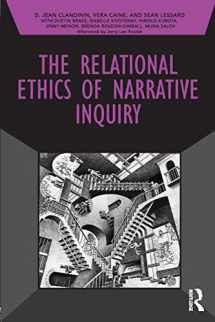
The Relational Ethics of Narrative Inquiry (Developing Qualitative Inquiry)
Book details
Summary
Description
Narrative inquiry is based on the proposition that experience is the stories lived and told by individuals as they are embedded within cultural, social, institutional, familial, political, and linguistic narratives. It represents the phenomenon of experience but also constitutes a methodology for its study. At the heart of this methodology is relational ethics. However, until now the functioning of this key relationship in practice has remained largely undefined. In this book the authors take on the essential task of developing a conceptual framework for the application of relational ethics to narrative inquiry.
Building on a corpus of more generalized research, this book is grounded in a multi-year study with indigenous youth and families. The authors describe their experiences of narrative inquiry, highlighting how relational ethics informed their negotiation of these research relationships. They also engage in a conversation with the work of philosophers who have guided their narrative inquiry to offer a more thorough understanding of relational ethics. Through this, and contributions from five further studies on a diverse range of subjects, a number of key points for successful relational ethics are isolated and expounded upon.
This book is an invaluable tool for researchers and postgraduates engaged in qualitative research ― providing clear and practical guidance on ethical concerns. It also extends the work of the authors’ two previous titles, Engaging in Narrative Inquiry and Engaging in Narrative Inquiries with Children and Youth.


We would LOVE it if you could help us and other readers by reviewing the book
Book review



